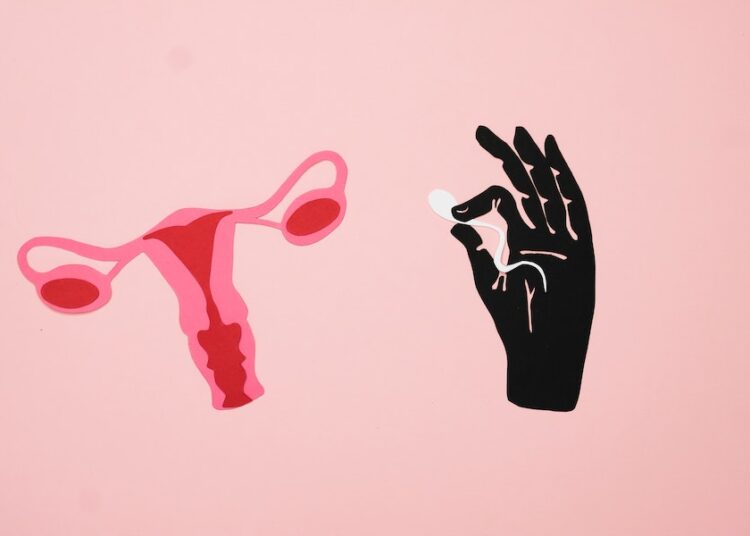Can you get pregnant with a low sperm count? It is possible, though if your partner has a lower than average sperm count, it can make it more difficult to conceive. A normal sperm count is defined as 15 million per milliliter or higher. Anything below that could be indicative of a variety of fertility issues and may require medical intervention in order to achieve pregnancy.
Infertility due to low sperm count affects approximately 7% of all men around the world. While having a low sperm count does not necessarily mean infertility, it may still affect the ability for couples to become pregnant without treatment. If your partner’s semen analysis shows that his sperm are abnormal or there are fewer than 15 million per milliliter, your doctor will likely recommend trying assisted reproductive technologies such as intrauterine insemination (IUI) or in vitro fertilization (IVF).
What is Low Sperm Count?

Low sperm count, or oligospermia, is a common male fertility issue. It occurs when there are fewer than 15 million sperm per milliliter of semen. It is usually caused by a hormonal imbalance in the testicles, which can be caused by several factors such as genetic conditions, long-term health problems, and certain medications.
When a man has low sperm count it means he has fewer chances of getting his partner pregnant naturally. While it is often treatable with medical intervention and lifestyle changes, many men feel frustrated due to their inability to have children on their own terms. Fortunately, there are ways for couples to conceive even if the male partner has low sperm count. Reproductive technologies such as in vitro fertilization (IVF) and intrauterine insemination (IUI) provide options for those struggling with infertility due to low sperm count.
Reasons for Low Sperm Count
Low sperm count is a common fertility issue for many men, affecting about one out of every five couples. This condition, also known as oligospermia, can have various causes and may be linked to lifestyle choices or environmental factors. Understanding the possible reasons for low sperm count can help identify potential treatments to reverse the situation and improve a couple’s chances of conceiving naturally.
One potential cause of low sperm count is testicular injury or infection, which can reduce testosterone production and interfere with sperm production. Moreover, certain chronic illnesses such as diabetes or kidney disease can also lead to low sperm counts due to hormonal imbalances or damage to reproductive organs. In addition, exposure to toxins like cigarette smoke and heavy metals has been linked with lower levels of sperm in semen samples taken from males living in heavily industrialized areas.
Can you get pregnant with a low sperm count ?
This is a question that many couples may have when trying to conceive. Though having a lower than normal sperm count can make it difficult to become pregnant, it does not mean that it is impossible.
Low sperm counts, also known as oligospermia, affects about 15% of couples trying to conceive and can cause infertility in men. Generally speaking, the lower the sperm count the more difficult it is to become pregnant naturally. Fortunately there are treatments available for those who suffer from this condition including medications and lifestyle changes such as avoiding alcohol and heat exposure. Additionally, there are various assisted reproductive techniques such as IVF or IUI which can help increase the chances of conceiving by increasing the number of healthy sperm being introduced into the uterus during conception.
How to Increase Fertility with Low Sperm Count
Having low sperm count can be incredibly stressful for men trying to conceive a child. It’s important to understand that low sperm count does not mean it’s impossible to become pregnant, but rather that it takes a little bit of extra effort and lifestyle changes. Fortunately, there are many steps you can take to improve fertility with low sperm count.
The first step is to make sure you are eating the right foods and exercising regularly. Eating nutrient-rich foods such as fruits, vegetables, whole grains and healthy proteins will help create an environment conducive for fertility. Additionally, exercising regularly helps maintain good blood flow throughout the body which is essential for healthy sperm production.
Another way to increase fertility with low sperm count is by taking supplements that have been proven effective in improving male reproductive health such as Vitamin C, zinc and selenium.
Pregnancy Success Rates with Low Sperm Count
Pregnancy success rates with low sperm count can be a daunting prospect for couples who are trying to conceive. However, it is important to remember that there are many options available and couples should not give up hope. Recent advances in reproductive technology have made it possible for couples with low sperm counts to successfully conceive and bring healthy babies into the world.
When discussing pregnancy success rates with low sperm count, the most important factor is understanding how infertility affects male fertility. Low sperm counts can be caused by a variety of factors including age, lifestyle habits, genetics, or health conditions such as diabetes or obesity. It’s essential that males get tested for their fertility levels before attempting to conceive so that any underlying issues can be addressed early on in order to increase chances of conception.









